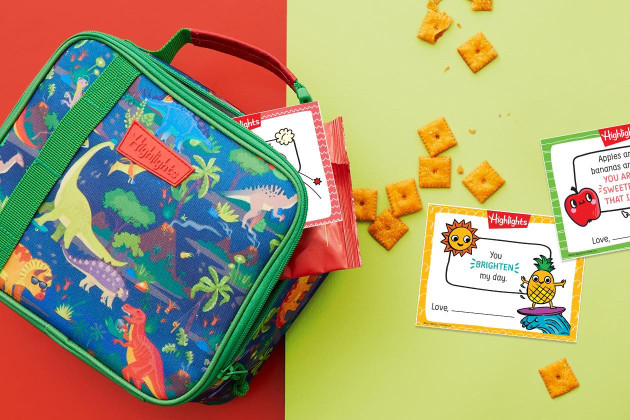6 Ways to Get Kids to Eat More Adventurously

Try these 6 simple eating tips for raising a real foodie under your roof! Here are simple ways to boost kids’ interest in food, desire for adventure and appreciation for what goes on in the kitchen.
Create an activity- and food-friendly workspace.
Why: So your child can be near you, learn from you and practice new skills!
Be sure you: Have plenty of craft supplies in baskets and jars of markers so little ones linger long.
Points for: Good lighting, chairs or stools, space for food prep and projects.
Short-term benefit: Activity draws kids to the kitchen. You cook while they create and snack (push a plate of sliced peppers or peeled carrots in their direction).
Let your kid offer ideas for dinner.
Why: Because it will help them learn to make good food and nutrition decisions.
Be sure you: Respect their choices—and turn over the reins on occasion. Let them help you shop for food, choose this tomato or that one and at home they can watch you store and prep food and work your kitchen magic.
Points for: Making the culinary world fun for newbies. Cook together and use cool restaurant terms like line chef, sous chef and head chef. Explain the tasks that fall to each team member.
Short-term benefit: Participation promotes cooperation and curiosity, and that lays the groundwork for competence in the kitchen and at the table later.
Bring on the gadgets.
Why: Kids innately love things they can manipulate.
Be sure you: Provide a hands-on experience.
Points for: Handing over your potato masher, salad spinner, hard-boiled egg slicer or apple corer.
Short-term benefit: Hikes motor skills and boosts knowledge of kitchen essentials.
Participation promotes cooperation and curiosity, and that lays the groundwork for competence in the kitchen and at the table later.
Shop the farmers’ market or grow your own herbs and veggies.
Why: Because everything tastes better fresh and in season.
Be sure you: Talk up the merits of sustainable farming.
Points for: Encouraging kids to ask questions, try samples, converse with sellers Short-term benefit: Makes kids savvy consumers.
Short-term benefit: Makes kids savvy consumers.
Introduce new foods slowly.
Why: Because eating is an adventure and nutrition is important.
Be sure you: Encourage your child to taste new food but don’t force them to eat it.
Points for: Persistence. Don’t give in to your own frustration. Serve tiny portions of new foods over and over—10 to 15 times if necessary, say experts.
Short-term benefit: Success here opens the door for bigger adventures.
Avoid ultimatums, as in “Finish your dinner or there’s no dessert.”
Avoid power struggles with picky eaters.
Because: They always backfire.
Be sure you: Avoid ultimatums, as in “Finish your dinner or there’s no dessert.”
Points for: Backing off.
Short-term benefit: Self-regulation. Kids learn to eat if and when they’re hungry instead of in response to threats and pressure.









